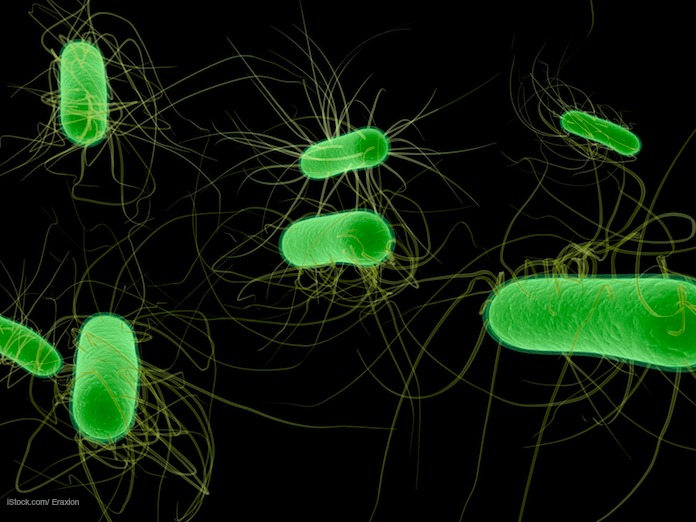A paper in the January 2017 edition of Nature Ecology & Evolution states that antibiotic-resistant bacteria grow faster and more efficiently than those that are not resistant to antibiotics. That is bad news in the fight against this deadly threat.

Antibiotic resistant bacteria develop when the organisms are exposed to antibiotics. The drugs kill most of the bacteria, but some survive. And those that survive develop resistance to the drugs. Worse, they can pass that resistance on to other bacteria.
The scientist from the University of Exeter were studying how E. coli bacteria develop resistance to antibiotics. In the study, they exposed the bacteria to doxycycline, a common antibiotic for treating infections.
The bacteria quickly developed mutations for doxycycline resistance, but the researchers also found that the mutated bacteria were multiplying more quickly than the non-mutated strains. In fact, the population of antibiotic-resistant E. coli tripled four days after exposure to the antibiotic. And this quick growth continued even after the dosing stopped.
In the process of evolution, there are usually “trade-offs.” That means that when a mutation occurs that benefits the organism, there are costs in other traits.
A “superbug” is a pathogenic bacteria that resists antibiotics with no apparent cost, or trade-off, in its pathogenicity. The trade off in this instance was an increase in lag time. But that was also a benefit, since the evolved bacteria are exposed longer to nutrients. The bacteria also may not use biofilm to protect the colony in place of rapid growth.
The authors state that it’s important to begin antibiotic treatments, and the right treatments, immediately when a patient presents with a bacterial infection to avoid this evolution. Once a bacteria has mutated to resist antibiotics, its energy can turn to reproduction instead of survival.
The study’s author, Dr. Robert Beardmore, said in a statement, “our research suggests there could be added benefits for E. coli bacteria when they evolve resistance to clinical levels of antibiotics. It’s often said that Darwinian evolution is slow, but nothing could be further from the truth, particularly when bacteria are exposed to antibiotics. Bacteria have a remarkable ability to rearrange their DNA and this can stop drugs working, sometimes in a matter of days.”




